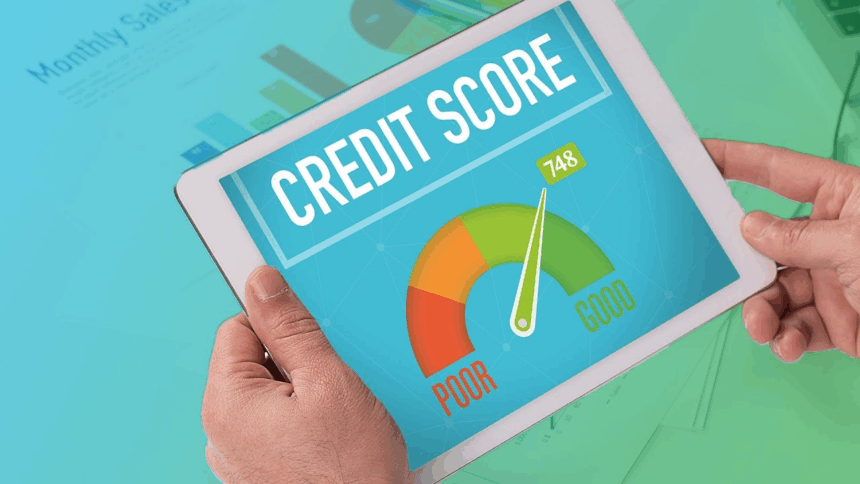In this article, we’ll break down how to improve your credit score fast, explain what factors influence it, and share practical steps you can take right now.
What Is a Credit Score and Why Does It Matter?
A credit score is a three-digit number that reflects your creditworthiness—basically, how likely you are to repay borrowed money. Most lenders use the FICO score, which ranges from 300 to 850. Here’s a simple breakdown:
| Credit Score Range | Rating | Meaning |
|---|---|---|
| 300–579 | Poor | High risk borrower |
| 580–669 | Fair | Needs improvement |
| 670–739 | Good | Average, acceptable credit |
| 740–799 | Very Good | Reliable borrower |
| 800–850 | Excellent | Top-tier creditworthiness |
Your score affects whether you get approved for loans or credit cards, and how much interest you’ll pay. Even a small improvement can save you thousands of dollars in interest over time.
Factors That Affect Your Credit Score
Before you start improving your score, it’s important to understand what influences it. The main factors include:
- Payment History (35%) – Paying bills on time is the most important part of your credit score.
- Credit Utilization (30%) – How much of your available credit you’re using. Keeping it below 30% is ideal.
- Length of Credit History (15%) – The longer your accounts have been open, the better.
- Credit Mix (10%) – A combination of credit types (credit cards, loans, mortgages) can help.
- New Credit Inquiries (10%) – Too many new credit applications can hurt your score.
Now, let’s move on to the practical steps you can take to boost your score fast.
1. Check Your Credit Report for Errors
The first step is to know where you stand. Get a free copy of your credit report from the major credit bureaus—Experian, Equifax, and TransUnion—at AnnualCreditReport.com.
Look for errors like:
- Incorrect late payments
- Accounts that don’t belong to you
- Old debts that should’ve been removed
- Wrong balances or limits
Even small mistakes can lower your score. If you find any, file a dispute online with the bureau. Correcting just one significant error can raise your score by 20 to 100 points within a month.
2. Pay Down Credit Card Balances
Your credit utilization ratio plays a big role in your score. This ratio is the amount of credit you’ve used compared to your total limit. For example, if you have a $1,000 limit and owe $700, your utilization is 70%—which can seriously hurt your score.
Try these quick fixes:
- Pay off balances early (before the billing cycle ends).
- Spread debt across cards instead of maxing out one.
- Request a credit limit increase, but don’t spend more.
If you can reduce your utilization below 30%, you may see results within 30–45 days.
3. Set Up Automatic Payments
Missed or late payments can drop your credit score by 60–100 points instantly. To avoid this, set up automatic payments or reminders for all your bills—credit cards, loans, utilities, and even rent (if reported).
Even paying the minimum balance on time helps maintain a positive history. Over time, consistent on-time payments can dramatically boost your credit score.
4. Become an Authorized User
If a family member or close friend has a long-standing credit card with excellent payment history, ask them to add you as an authorized user. Their positive history will appear on your report—instantly improving your score.
Make sure the card issuer reports authorized user activity to the credit bureaus (most do). This method can raise your score within one to two months, especially if your credit history is short.
5. Keep Old Accounts Open
It might seem smart to close old credit cards you no longer use, but doing so can shorten your credit history and hurt your score. Older accounts show lenders that you have long-term credit experience.
Instead of closing unused cards, keep them active by:
- Making a small purchase once every few months
- Paying it off immediately
This simple strategy helps maintain your credit age and keeps your utilization ratio lower.
6. Mix Up Your Credit Types
Having a variety of credit accounts—like a credit card, personal loan, or car loan—can strengthen your score. Lenders like to see that you can manage different types of debt responsibly.
If you only have credit cards, consider a credit-builder loan or secured personal loan. These options help establish a more diverse credit profile while improving your score over time.
7. Limit New Credit Applications
Each time you apply for a credit card or loan, the lender performs a hard inquiry, which can slightly lower your score. Too many inquiries in a short period make you look risky to lenders.
To protect your score:
- Avoid applying for multiple cards at once.
- Only apply when necessary.
- Rate shop for loans within a short window (15–30 days) so inquiries count as one.
8. Use Experian Boost or Similar Tools
Platforms like Experian Boost allow you to add utility bills, phone payments, and streaming subscriptions to your credit file. These on-time payments can raise your score within minutes—especially if your file is thin or you’re new to credit.
Other similar services include:
- UltraFICO
- eCredable Lift
They’re safe and free ways to give your score an instant boost.
9. Negotiate to Remove Late Payments
If you’ve made a late payment but generally have a good history, try reaching out to your creditor and asking for a “goodwill adjustment.”
Explain your situation politely and request that they remove the late mark from your credit report.
Sometimes, lenders agree—especially if it was a one-time mistake. Removing just one late payment can make a noticeable difference.
10. Be Patient, but Stay Consistent
Even though these methods can help you improve your credit score fast, true financial health comes from consistent habits. Keep making payments on time, maintaining low balances, and reviewing your reports regularly.
With discipline and smart planning, you can move from fair to good credit in just a few months—and possibly reach excellent credit within a year.
Quick Recap: Fast Credit Score Boosters
| Action | Estimated Impact | Timeframe |
|---|---|---|
| Dispute errors on report | +20–100 points | 1–2 months |
| Pay down balances | +30–80 points | 1–2 billing cycles |
| Become an authorized user | +10–60 points | 1–2 months |
| Set up automatic payments | Prevents future drops | Immediate |
| Use Experian Boost | +10–30 points | Same day |
Conclusion
Improving your credit score fast isn’t about luck—it’s about strategy, discipline, and consistency. Start by reviewing your credit report, paying down high balances, and making every payment on time. Small, smart actions today can open the door to lower interest rates, easier approvals, and more financial freedom tomorrow.
Remember, your credit score doesn’t define your worth—but improving it can definitely improve your life.
FAQs About Improving Credit Score Fast
1. How long does it take to see results in my credit score?
Most people notice changes within 30 to 60 days, depending on how often lenders report updates to the credit bureaus.
2. Will paying off all my debt instantly fix my score?
It can help, but the impact depends on your overall credit mix, history, and utilization. Paying off credit cards helps faster than paying off installment loans.
3. Does checking my own credit report hurt my score?
No, checking your own report is considered a soft inquiry and does not affect your score.
4. Can I rebuild my credit if I’ve had a bankruptcy or default?
Yes. It takes time, but with consistent on-time payments, low credit utilization, and responsible use of new credit, you can rebuild a strong score.
5. What’s the fastest single action to boost my credit score?
Paying down high credit card balances and disputing report errors usually deliver the quickest and biggest improvements.









